Where you can study
International students
International students are not New Zealand citizens or residents.
Specialise in Property for your Bachelor of Business at Massey
Massey University's Bachelor of Business (Property) will give you an introduction to a wide range of professional skills relevant to the industry. These include property development, management, valuation, finance, investment and economics.
You will learn the communication skills you’ll need to operate within the industry and to work effectively with clients.
Real world learning
Our lecturers at Massey combine extensive real-world property industry experience with sound academic knowledge, ensuring you are career-ready.
Our field trip programme is also a great supplement to your studies. You’ll visit a wide range of properties owned, occupied or operated by individuals or organisations. We will arrange business and professional contacts for you during your studies. This will expose you to operating procedures, research facilities and employment opportunities. Practical assignments are organised to provide you with the appropriate professional skills and will also give you that essential link between theory and practice.
The qualification is structured to allow for specialisation while preparing you for an interesting and rewarding career in a variety of property positions.
Learn from leading business experts
Our lecturers are actively researching, bringing the most relevant developments in business theory and practice to your study.
A Bachelor of Business in Property is a good fit if you:
- are interested in real estate and property
- enjoy meeting new people, and are a good communicator
- would like to specialise in property, but want to keep your career options open.
Planning information
The BBus provides considerable flexibility, enabling you to take control of your own programme within the regulations.
If you study full-time, in your first year, you’ll take eight 15-credit courses, making a total of 120 credits.
If you wish to study over two semesters, you should aim for 60 credits per semester. You may be able to take some courses at summer school. Make sure you include courses that are prerequisites for the next level of courses you wish to study.
Core business courses
There are ten core business courses and you must pass at least eight of them. The core courses are 115111, 1115112, 115113, 115114, 115115, 115116, 115211, 115212, 115230 and 115340.
You must pass at least 60 credits of 100-level core courses within the first 120 credits, and and at least 30 credits of 200 or 300-level core courses within the first 240 credits of study towards the degree.
These are courses which cover topics across the business spectrum. They are designed to give you the leadership, communication and solid business skills that you will need in your career.
In your first year
You must include course 115114 in your first year of study as you require this course to gain entry to one of your major courses.
What will you learn?
Property valuation
Property valuations are required as the basis for a wide variety of real estate decisions, including those concerned with the buying and selling of property, advancing money on the security of a property, rental assessments, subdivision of property interests, compensation for public acquisitions, the assessment of local authority rates, and other forms of taxation. You can meet the requirements for accreditation by the Valuers Registration Board by including specific courses as electives.
Property development and management
Property development involves planning the purchase, development, and sale of new or existing properties. This can include residential subdivisions, construction of office buildings, establishment of industrial parks, and refurbishment of existing buildings. Property management involves the day-to-day management of commercial property, including office buildings, retail outlets, industrial properties, and apartments. It includes management of the building and the facilities within the building.
Property finance and investment
Evaluating a property financing decision requires assessing lending risks and understanding how interest rates are determined. Property investment can cover all classes of property and involves looking for and analysing investment opportunities. Analysis involves technical calculations and an understanding of the risks and returns of the investment.
Property market principles and economics
Property market principles and economics knowledge is required to discuss how uses of property resources are economically determined and developed within shared urban space – especially at different global, international, national, regional, urban, local and site scales. Property market analysts and property economists are able to critically discuss and reflect on economic theory and practice in property, while using the lens of economics to analyse property given current (and potential future) trends.
Minors
Completing a minor is optional. Minors increase the breadth of your degree. They give you extra knowledge, attributes and capabilities.
A minor must be in a different subject from your major.
A Bachelor of Business (Property) with a minor
You may choose a minor from any University undergraduate degree that has recognised minors. If the minor is from another undergraduate degree, the regulations of that qualification will apply.
A property minor (for students who are studying a different degree)
If you are not studying a Bachelor of Business (Property) and wish to complete a minor in property see the BBus regulations for the requirements of this minor.
Meeting requirements for industry membership
Registered Valuer with the Valuers Registration Board (VRB) of New Zealand
If you intend to apply to the Valuers Registration Board for registration as a valuer you need to include the courses in the table below in your study plan. Please note that they are subject to change periodically.
Licensee by the Real Estate Agency (REA)
The BBus in Property, when coupled with any assessment required by SKILLS ITO, meets the licensing requirements under Real Estate Agents Licensing Regulations 2009.
Royal Institution of Chartered Surveyors (RICS) - Member
If you intend to apply for membership of the Royal Institution of Chartered Surveyors (RICS) the BBus (Property) Major is a fully accredited qualification.
Real Estate Institute of New Zealand - Associate
If you wish to apply to become an associate of the Real Estate Institute of New Zealand (AREINZ) when you complete your degree, you need to take the courses indicated below as part of your Bachelor of Business (Property).
Member of Property Institute of New Zealand (PINZ)
The Property Institute of New Zealand recognises a number of Massey University qualifications for entry to Member status or for registration within PINZ streams.
Courses required for industry membership
|
|
Real Estate and Licensee by the |
Member of the and Member of Property Institute of |
Valuers Registration and Member of the NZ |
|---|---|---|---|
|
|
Full Bachelor’s degree required, including the courses below: |
||
|
✓ |
✓ |
✓ |
|
|
✓ |
✓ |
✓ |
|
|
✓ |
✓ |
✓ |
|
|
✓ |
✓ |
✓ |
|
|
✓ |
✓ |
✓ |
|
|
✓ |
✓ |
✓ |
|
|
✓ |
✓ |
✓ |
|
|
✓ |
✓ |
✓ |
|
|
✓ |
✓ |
✓ |
|
|
✓ |
|
✓ |
|
|
|
|
✓ |
|
|
|||
Official regulations
To understand what you need to study and must complete to graduate read the official rules and regulations for this qualification.
You should read these together with all other relevant Statutes and Regulations of the University including the General Regulations for Undergraduate Degrees, Undergraduate Diplomas, Undergraduate Certificates, Graduate Diplomas and Graduate Certificates.
Returning students
For returning students, there may be changes to the majors and minors available and the courses you need to take. Go to the section called ‘Transitional Provisions’ in the Regulations to find out more.
In some cases the qualification or specialisation you enrolled in may no longer be taking new enrolments, so may not appear on these web pages. To find information on the regulations for these qualifications go to the Massey University Calendar.
Please contact us through the Get advice button on this page if you have any questions.
Courses you can enrol in
Course planning key
- Prerequisites
- Courses that need to be completed before moving onto a course at the next level. For example, a lot of 200-level courses have 100-level prerequisite courses.
- Corequisites
- Courses that must be completed at the same time as another course are known as corequisite courses.
- Restrictions
- Some courses are restricted against each other because their content is similar. This means you can only choose one of the offered courses to study and credit to your qualification.
Core courses for the Bachelor of Business
As well as the specialisation courses listed below, this qualification has core courses that you will need to complete.
Bachelor of Business core courses
Property courses
Compulsory courses
Course code: 127241 Property Market Principles 15 credits
A broad based introduction to property examined from both a New Zealand and international perspective. This course incorporates the use of technology in relation to all aspects of the property market.
View full course detailsCourse code: 127242 Introduction to Property Valuation 15 credits
An introduction to the principles and methods of property valuation.
View full course detailsCourse code: 127245 Introduction to Property Finance and Investment 15 credits
Introduction to property investment analysis, the role of property finance and the evaluation of property financing decisions.
View full course detailsCourse code: 127341 Property Management and Development 15 credits
The application of analytical techniques to, and the appraisal of, the management and development of commercial real estate resources.
View full course detailsCourse code: 127343 Applied Property Valuation 15 credits
The application of valuation theory in relation to commercial and industrial property, both vacant and improved, valuation practices.
View full course detailsCourse code: 155201 Law of Property 15 credits
The law relating to the transfer and ownership of and other dealings in real property.
View full course detailsCompulsory Capstone course
Course code: 127342 Applied Property Finance and Investment 15 credits
This capstone course is an applied study of property finance and investment analysis which includes portfolio theory in relation to property.
View full course detailsSubject courses
Course code: 115388 Internship in Business 30 credits
Provides an individual practical experience in business, linking theory to practice. It consists of a period of supervised study and practical experience in an area related to individual disciplinary and professional interests.
View full course detailsCourse code: 115389 Business Internship 15 credits
This course provides an individual practical experience in business in which students deliver a set project in a business, linking theory to practice.
View full course detailsCourse code: 127378 Property Economics and Planning 15 credits
A study of location theory, planning and the economic dynamics involved in the development of cities, using analysis of property space and asset class.
View full course detailsEntry requirements
Admission to Massey
All students must meet university entrance requirements to be admitted to the University.
Specific requirements
There are no specific entry requirements for this qualification, outside of university admission regulations.
English language requirements
To study this qualification you must meet Massey University's English language standards.
English language skills
If you need help with your English language skills before you start university, see our English for Academic Purposes (EAP) courses.
Can't meet the entry requirements?
If you need to do a course before you start your programme, there may be options for you in Summer School.
Fees and scholarships
Fees, student loans and free fees scheme
Your tuition fees may be different depending on the courses you choose. Your exact fees will show once you have chosen your courses.
There will also be some compulsory non-tuition fees and for some courses, there may also be charges for things such as study resources, software, trips and contact workshops.
- Get an estimate of the tuition fees for your qualification
- View a list of non-tuition fees that may be payable
Already know which courses you're going to choose?
You can view fees for the courses that make up your qualification on the course details pages.
Student loans (StudyLink) and Fees Free scheme
You may be eligible for a student loan to help towards paying your fees.
The New Zealand Government offers fees-free tertiary study for eligible domestic students. Find out more about the scheme and your eligibility on the Fees Free website. To use the site's eligibility checking tool, you will need your National Student Number.
Current and returning Massey students can find their National Student Number in the student portal.
- Student loans (StudyLink)
- Fees Free
- Student portal
Scholarship and award opportunities
Find more scholarships and awardsFees disclaimer
This information is for estimation purposes only. Actual fees payable will be finalised on confirmation of enrolment. Unless otherwise stated, all fees shown are quoted in New Zealand dollars and include Goods and Services Tax, if any. Before relying on any information on these pages you should also read the University's Disclaimer Notice.
Careers and job opportunities
There is a huge range of careers in the property business in which you can choose to specialise. Or become a generalist. Examples include:
- Private practice firms involved in property and development consultancy, project management and coordination, and property management
- Valuation firms
- Commercial and industrial enterprises which use, occupy, or own all types of property
- Development and construction companies
- Real Estate firms - domestic and international
You can also apply for jobs in related areas such as insurance or finance companies, government organisations, local and regional authorities or shopping centres.
Depending on ultimate choice of careers, Property Institute of New Zealand (PINZ), The Royal Institute of Chartered Surveyors (RICS) and the Real Estate Institute of New Zealand are the professional organisations that you are most likely to join as a graduate of this qualification. Each body is closely involved with the development of Massey's courses. Both institutes actively encourage students to get involved in the affairs of the local branch and, upon graduation, to become members of one or more of these organisations.
What are the specialisations?
Property valuation
Property valuations are required as the basis for a wide variety of real estate decisions. You can meet the requirements for accreditation by the Valuers Registration Board by including specific courses as electives.
Property development and management
Property development involves planning the purchase, development, and sale of new or existing properties.
Property finance and investment
Evaluating a property financing decision requires assessing lending risks and understanding how interest rates are determined.
Property market principles and economics
Property market principles and economics knowledge is required to discuss how uses of property resources are economically determined and developed within shared urban space.
You can find more information about these specialisations in ‘Planning information’.
International students
New Zealand is a great place to study. Massey University’s reputation is supported by our international rankings, accreditations and associations. We are rated five star plus by the QS World University Rankings.
Massey University has small class sizes, and our lecturers and staff are friendly and approachable.
As an international student, there are entry requirements that will apply to you. We recommend that you apply at least three months before your anticipated start date so your application can be processed in time. There are additional steps you will need to take. These include obtaining a visa and travel bookings if your study is to be in New Zealand.
What our students say
“Being a full-time athlete doesn't allow me to go to a campus, however studying online gives me the flexibility to work in my own time. You can only play sport for a short period of your life; studying is preparing me for life after sport by allowing me to learn new skills.”

Accreditations and rankings
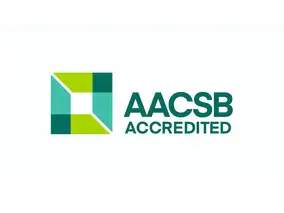
Association to Advance Collegiate Schools of Business (AACSB)
Massey Business School is rated in the top 5% of global business colleges by AACSB International.
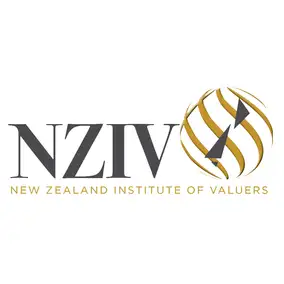
New Zealand Institute of Valuers (NZIV)
Once you are registered with the Valuers Registration Board you may also apply to become a Member of the New Zealand Institute of Valuers (MNZIV). After 1 year of NZIV membership a member can apply to become an Associate member of NZIV (ANZIV, MPINZ).
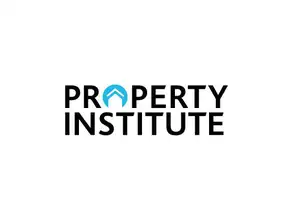
Property Institute of New Zealand (PINZ)
The Bachelor of Business (Property) and Bachelor of Agribusiness (Rural Valuation) are accredited by the Property Institute of New Zealand (PINZ). Suitably qualified students may apply to PINZ to obtain registration in their selected field of expertise. Registration requires the necessary qualifications and at least 3 years practical experience in a selected field of expertise.
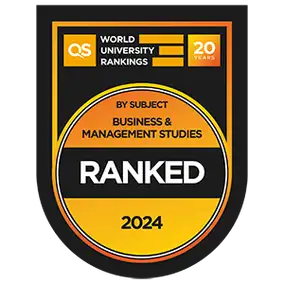
QS Ranking - Business Management Studies
Massey University is ranked by QS (Quacquarelli Symonds) as one of the top 400 universities for business and management.
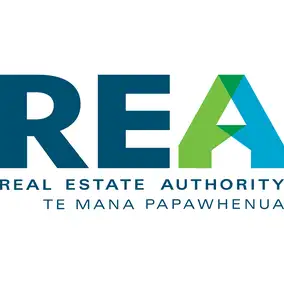
Real Estate Authority
The BBus in Property, when coupled with any assessment required by SKILLS ITO, meets the licensing requirements under Real Estate Agents Licensing Regulations 2009.

Real Estate Institute of New Zealand (REINZ)
The Real Estate Institute of New Zealand (REINZ) accredits the Bachelor of Business (Property). It represents more than 14,000 real estate professionals nationwide.
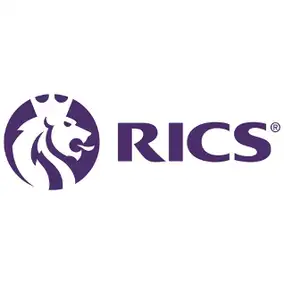
Royal Institution of Chartered Surveyors (RICS)
Massey's Bachelor of Construction is accredited by the Royal Institution of Chartered Surveyors. This global professional body promotes and enforces international standards in the valuation, management and development of land, real estate, construction and infrastructure.

ShanghaiRanking – Business Administration
Massey University is ranked #2 in New Zealand for business administration by ShanghaiRanking.
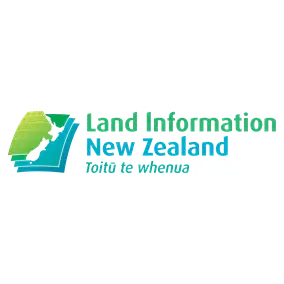
Valuers Registration Board (VRB)
Suitably qualified students may apply to the Valuers’ Registration Board to obtain registration as a valuer. Registration (recognised as a minimum standard of competence) requires the valuer be 23 years of age, have the necessary qualifications and a minimum 3 years practical valuing experience. Registration is covered in the Valuers Act (1948).
Related study options
Construction Project Management – Postgraduate Diploma in Construction
The Postgraduate Diploma in Construction (Construction Project Management) is a stepping stone to a research-based degree. Learn key project management skills, taught by industry experts.
Construction Project Management – Master of Construction
Join the Master of Construction (Construction Project Management) – one of the first construction-focused management qualification in New Zealand.
Useful planning information

Key information for students
Compare qualifications and academic information across different New Zealand institutions. Learn more on careers.govt.nz